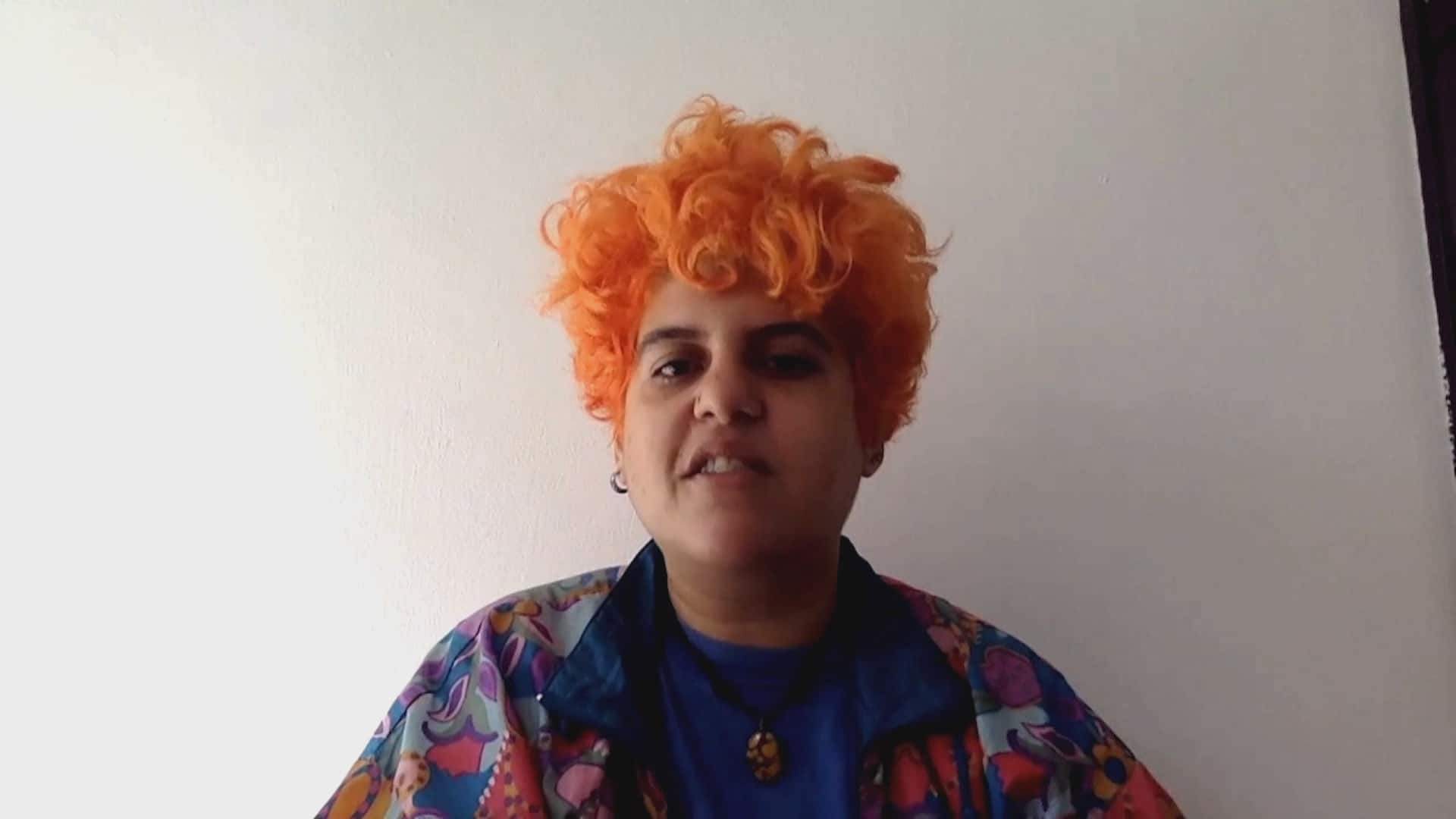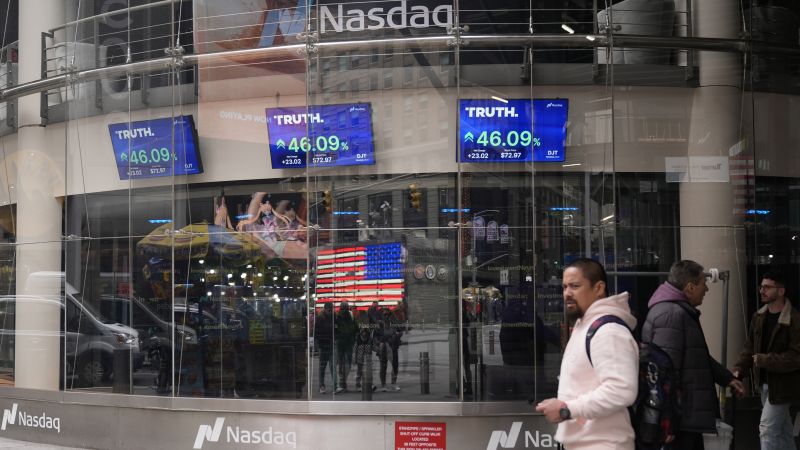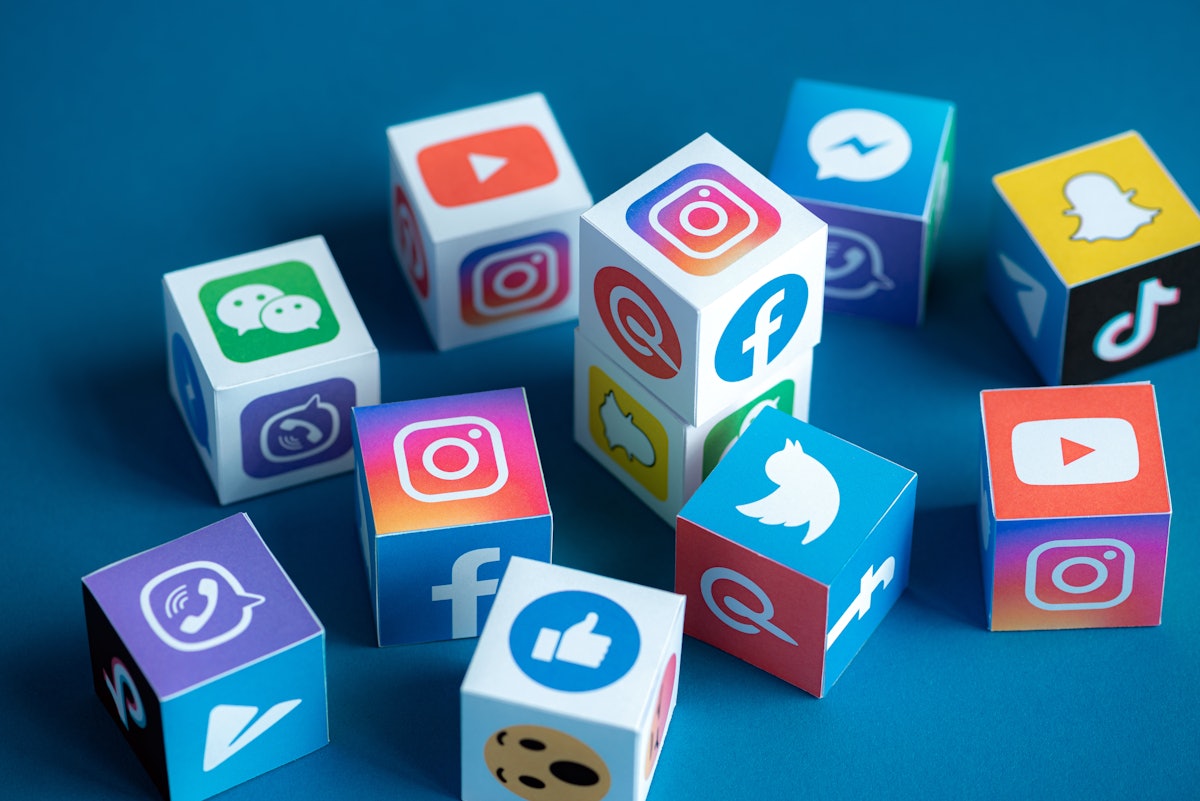Media
Women in Egypt thronging to social media to reveal sexual assaults, hold abusers to account

|
|
In Cairo, secrets long suppressed have been rising to the surface — and with them hopes the country may be experiencing a feminist movement capable of challenging the culture of impunity that has long accompanied gender-based violence in Egypt.
Online testimonials over the summer by hundreds of women on social media accounts offering anonymity have led authorities to open investigations into two alleged rape cases involving young men from wealthy and influential families.
“Egypt is on fire,” said Mozn Hassan, head of the women’s rights organization Nazra for Feminist Studies. “On fire for more than three months talking about different incidents in different sections and layers [of society].”
Social media, she said, has offered Egyptian women a safe “public sphere” that lets them know they are not alone.
In July, that space led to the arrest of a former American University in Cairo (AUC) student named Ahmed Bassem Zaki, accused of raping a number of women and blackmailing them for sexual favours. A Cairo court has set Oct. 14 as a trial date for Zaki.
“We at first just wanted him to admit it, that he did these things,” said Sabah Khodir, an Egyptian writer and poet who was one of the first to post online warnings about Zaki when she started to hear about his alleged behaviour from friends.
WATCH | How Egyptian society shapes men’s perceptions of women:
They see us truly as objects’ 0:38
It set off a tidal wave with another Instagram account called Assault Police, encouraging women to share any information they had on Zaki.
“Then girls kept coming forward from all over parts of the world,” Khodir said. “We realized we actually have a shot at finally getting a serial rapist and predator in jail in Egypt that has money and power.”
It also led to an outpouring of other accounts of sexual abuse and harassment as women opened up about their experiences, some buried deep in the past.
Khodir left Egypt for the United States last year after she herself was sexually assaulted. She said it wasn’t until after Zaki’s accusers started speaking out that she felt able to tell her own story of being abused by a trusted friend.
“There was a lot of manipulation involved, a lot of, you know, but look at what you’re wearing,” she said. “I think these men never look at women as people … you know, women are like lollipops or women are like diamonds or women are like cars. If it leaves its door open, it wants to be stolen.”
She said she never spoke of it to her parents, but her mother guessed after Khodir became more outspoken online.
Definition of rape ‘limited’ in Egypt
Challenging the status quo in a socially conservative and autocratic patriarchy like Egypt can be both difficult and dangerous.
Predators are able to hide in the weeds of a distorted morality, enabled by a society where victims of sexual harassment and violence have long been blamed and shamed into silence.
“It will be like, oh, he’s bad, but you’re also wrong,” Khodir said. “And goodness, you don’t want to be wrong and a woman in the Middle East because you’re not forgiven for being wrong. It’s like you don’t make mistakes. You’re born a mistake. And that’s really it.”
There are some 102 million people living in Egypt, nearly half of them female. The country places 134th out of 153 on the World Economic Forum’s 2020 Global Gender Gap Report.
In 2013, a United Nations survey found that 99 per cent of Egyptian women polled said they’d experienced some form of sexual harassment. Women in Egypt today say not much has changed since then.
“It either [happens] in college or school situations,” said one young woman interviewed by CBC News in Cairo in August. “It could be even the street, especially the metro. The metro is not a safe environment.”
“There are victims everywhere, even at work,” said another. “And ladies will not report it ever because they’re afraid of all the scandals that happen.”


In 2011 in Cairo’s Tahrir Square, the epicentre of Egypt’s Arab Spring, a large number of women joined the protests demanding the fall of Egyptian strongman Hosni Mubarak, who at the time had been president since 1981.
They were heady days, with the country balancing on the edge of a potential new dawn. But in the crowds, some women were assaulted, surrounded by groups of men, stripped and abused by penetrating hands.
That doesn’t count as rape in Egypt.
“We don’t have a definition of sexual violence,” said feminist Mozn Hassan, who used her NGO to help victims at the time. “And the definition of rape is limited. So rape with a sharp object, oral rape, anal rape, is not a rape.”
Arrests signal ‘a paradigm shift’
There are signs, though, that the Egyptian government is feeling the pressure of recent events. In August, the country’s parliament passed a bill aimed at ensuring the anonymity of victims and witnesses in sexual assault cases.
Nehad Abul Komsan, a lawyer who heads the Egyptian Center for Women’s Rights, points to a second case authorities are investigating after allegations were posted on the Assault Police account about a gang rape at a Cairo hotel in 2014.
“To have a case six years ago and [the] public prosecutor open investigation in this case — this is completely new in the judiciary system at all. That’s why I believe it is a paradigm shift.”
Police issued arrest warrants for eight young men accused of gang raping a young woman and videotaping the incident at a private party at the Fairmont Nile City, a luxury hotel. Authorities even extradited three of them from Lebanon.
As in the Zaki case, they were wealthy men from influential families.
“I knew two of these guys, so I was, like, very triggered,” said Raguia Mostafa, another woman who found herself confronting her own history when Egyptian women started sharing their stories this past summer.
“It kind of just reminded me of my own incidents when I was raped and when I was abused.”
WATCH | Changing societal attitudes in Egypt:


Egyptian Raguia Mostafa, who has been advocating for women’s rights from outside Egypt, talks about changing societal attitudes by urging mothers to raise their sons to respect women. 0:37
Like Khodir, Mostafa has left Egypt, fortunate enough to have the means to do so, she said. A graduate of AUC, she speaks five languages and is currently living in Mexico City.
Her molestation at the age of 11 by an older friend whom she maintained a relationship with for years is just one instance of abuse she speaks about.
When she decided to confront him, there were repercussions, Mostafa said.
“He has all these screenshots that he’s using against me. Like ‘she can’t say I groped her if she did this consensually later.’ It’s like, no man, I can because I was a kid. I didn’t understand. And the fact that it took me 12 years to realize what you did to me is f–king scary. But he won’t acknowledge that. Instead he chose to threaten my parents.”
It’s not just a judgmental society women have to take into account as they navigate these issues, but an authoritarian regime that can give with one hand while taking away with the other.


Authorities, for example, might have arrested the young men accused in the Fairmont case. But they also arrested some of the witnesses, using images from their phones to charge them with immoral behaviour. One woman was apparently subjected to a virginity test.
“It’s just insane how much power the government has,” Mostafa said. “The fact that the government can just arrest rape victims and witnesses to a rape just like that for no premise. No one can do anything about it.”
Regime tough on ‘TikTok girls’
A Human Rights Watch report has also accused the Egyptian regime of deliberately targeting and jailing female social media influencers. Charged with “inciting debauchery,” some have been given jail sentences of two years just for dancing on TikTok.
The “TikTok girls,” as they’re widely known, come from poorer social classes than the women involved in the Zaki or Fairmont cases — meaning they have fewer tools at their disposal to defend themselves.
“I think we have to see it within the context of how this regime is trying to control everything,” Hassan said, referring to a relatively new cyber-crime law being employed by the government aimed at the abuse of “Egyptian family values.”
Hassan herself has been subject to a travel ban since 2016, a form of harassment regularly employed by the Egyptian government.
Nehad Abul Komsan said it’s important not to divide women experiencing oppression and abuse into different categories, such as rich and poor.
“Being economically empowered doesn’t mean you’re not afraid from social stigma or condemning. All the families, they feel there is a problem that would affect their [daughters’ futures] and their chances of marriage and all this stuff. There is no difference of being poor or rich on this issue.”
It makes it clear just how deep societal change will have to be for real progress to arrive in a country where women still make up only 24.7 per cent of the workforce.
Raguia Mostafa said she will not return to Egypt, unwilling to accept the limits it would place upon her.
“Instead of protect your daughters and tell your daughters not to go out at night or tell them to dress a certain way, I would much rather for the dialogue to form into like, teach your men, teach your sons to respect women,” she said.
Sabah Khodir said she would like to return from the U.S. one day but is unsure if she can. It’s one reason why she’s uneasy labelling what’s happening in Egypt as the country’s #MeToo movement, saying the consequences are different in Egypt.
“The consequences aren’t that I tell my story, and the worst thing that’s going to happen is that somebody is going to say I’m a liar. The consequences [are] that I’m going to tell my story and there’s a very good chance I might not see my family again,” she said.
“Or there’s a very good chance that someone’s going to try to hurt me and harm me into being quiet. And there’s a very good chance that I’m going to walk out of this with absolutely nothing.”
Source: – CBC.ca
Media
Bitcoin halving, Trump Media stock falling, and banks rising: Markets news roundup – Quartz


Trump Media & Technology Group said it will issue millions more shares, sending its stock plunging again.
The company behind former President Donald Trump’s Truth Social platform said in a Securities and Exchange Commission filing that it is registering the resale of up to almost 21.5 million new shares of common stock issuable upon the exercise of warrants, up to about 146 million shares of common stock, and up to about 4 million warrants to purchase common stock. Certain shares held by insiders may still be restricted from trading until the expiration of a lock-up agreement 5-6 months after the date of the IPO.
Media
Trump Media warns Nasdaq of suspected market manipulation – CNN


New York
CNN
—
Trump Media, the parent company of the former president’s Truth Social, alerted Nasdaq Inc. on Thursday of what the company suspects is illegal activity driving down the price of its shares.
In a letter to the exchange, Devin Nunes, the CEO of Trump Media (DJT), laid out what he believes could be deemed “naked” short selling.
Naked short selling involves someone selling shares they don’t own or have not borrowed. They will often then try to buy shares at a reduced price to cover themselves. This practice is generally illegal. Whereas legitimate short sellers, people who seek to benefit from declines in the value of a company’s shares, borrow the shares before selling.
The letter was made public Friday in a filing with the Securities and Exchange Commission.
Nunes also noted in the letter that shares of the company were on a list the Nasdaq maintains that’s “indicative of unlawful trading activity.”
“This is particularly troubling given that “naked” short selling often entails sophisticated market participants profiting at the expense of retail investors,” he said.
Representatives from Nasdaq and Trump Media did not immediately respond to requests for comment.
The company, which is majority-owned by former President Donald Trump, is down by around 50% from the all-time high it set on March 26, the day after it merged with a blank-check acquisition company to go public.
Shares of company have been on a wild ride since.
Although the company is still worth billions of dollars, it is struggling to make money and needs cash. Experts have warned investors to be careful if they choose to trade the stock, because the company doesn’t have the fundamentals to back up its sky-high valuation.
Trump Media lost $58 million in 2023 and made just $4.1 million in revenue.
Shares of the company ended Friday’s session about 9.6% higher.
This story has been updated with additional developments and context.
CNN’s Nicole Goodkind contributed to this report.
Media
Social Media Tips for Event Profs – BizBash


Social media changes rapidly—and what worked last year might not work in 2024. (Just look at X’s, or Twitter’s, dramatic revenue loss after many major platforms have stopped posting or advertising on the platform.) So what does work on social media right now, particularly for event professionals?
“We don’t just want our audience to understand what we do—we want them to know who we are,” says Zoe Haynes, the sales and marketing coordinator for PlatinumXP who oversees the event planning agency’s digital marketing. “Social media has evolved into a space for cultivating relationships and building trust. We utilize various platforms to tell stories—the story of an event transformation, behind the scenes with our production crew, or maybe even some fun office shenanigans with our CEO.”
Haynes’ focus on maintaining a consistent, authentic brand presence was a common theme among event professionals we spoke to about how they’re using social media right now. It’s all about “fostering an ongoing connection with our followers,” agrees Elias Contessotto, social media manager for event production company 15|40.
But remember: Not every platform is created equal. Contessotto stresses the importance of tailoring your approach with each platform—but also not being afraid to experiment a bit to ensure you’re staying ahead of trends and maximizing audience engagement. “By creatively testing new tactics, we gauge audience response and efficacy, gradually integrating successful approaches into our channels,” he explains. “This iterative process empowers us to refine our content strategy continuously, adapting to evolving trends and audience preferences.”
In short, “It’s all about meeting your audience where they’re at,” says Taylor Elliot, vice president of marketing and brand strategy for Shepard Exposition Services. “Social media is such a great tool to amplify your brand voice. I always say as marketers we need to create a system that works for our brand even when we are sleeping, and social media is one of the tools to help achieve this.”
LINKEDIN & INSTAGRAM
From our conversations, LinkedIn and Instagram quickly emerged as the two top platforms in the event industry. “Instagram is our go-to for showcasing stunning event photos—however, LinkedIn holds equal if not greater importance in our strategy,” explains Haynes. “While Instagram captures attention with its visual allure, LinkedIn allows us to dive deeper into industry conversations and build relationships with our peers.”
Contessotto likes to target a B2B audience with 15|40’s LinkedIn presence, posting content that focuses on industry insights, professional networking, and collaborations with studios. “We often share static posts similar to those on Instagram, tagging relevant studios to expand our reach,” he says, noting that LinkedIn posts are often reshared by team leaders and executives. “LinkedIn [also] serves as a prime platform for spotlighting press coverage, award nominations, and industry highlights.”
On Instagram, meanwhile, Contessotto expands 15|40’s content to cater to both B2B and B2C audiences. “We share visually engaging posts that highlight our expertise, industry leadership, and collaborations, appealing to a wider range of followers,” he says. “Instagram will have ‘POV’ content, which is much more personal and requires less high-quality tools to tell our story. I came to 15|40 from an influencer background, and from experience, I notice that more amateur content does better on that platform, like using an iPhone for reels rather than a DSLR camera.”
Heather Rouffe, director of sales at Atlas Event Rental, also appreciates the more personal touch that can come with Instagram. “Through that platform, we strive to educate the industry, create brand awareness, and most importantly to us, show the personal side to our company, brand, and rentals,” she explains. “With so much of the human side of things lost in a digital age, being personable and showing the people behind the brand is very important to us. We find the clients really appreciate the behind-the-scenes content and becoming familiar with the Atlas crew.”
On the flip side, though, that doesn’t mean LinkedIn can’t get a little personal. Al Mercuro, senior account director at trade show display company Genesis Exhibits, prioritizes LinkedIn due to the connections he’s been able to make with marketing directors and event directors at companies he’d like to do business with.
“I try to not promote my company as much as my brand by sharing information that will help them in their jobs—I find I get many referrals this way,” Mercuro notes. “I believe it is also a living resume; before I meet with someone, they will often check out my LinkedIn page to learn more about me. The more you can build up your profile and the number of connections you have adds to your value and makes it attractive to have them want to work with you.”
Jonathan Kazarian, the founder and CEO of Accelevents, also uses LinkedIn to build up his personal thought leadership—and therefore, build awareness of his event management software company. “Ninety-nine percent of what I share on LinkedIn is professional,” he says. “I’ll share something about my personal life to build connection, but that’s not my focus with LinkedIn.”
FACEBOOK, TWITTER (X), TIKTOK, & MORE
In a sign of changing times, most of the event professionals we spoke with are not investing much in Facebook or Twitter (now known as X)—though many are still updating them.
“We push out all of our Instagram content to our Facebook, to ensure our followers and intended audiences on both platforms are receiving similar content,” says Contessotto. “We also maintain our Twitter, or X, channel to share some of our event photos, as well as retweet content that clients we work with post that are captured at our events.”
Mercuro finds that Facebook is still an effective way to reach older generations—but for younger generations, he’s found some success marketing events on TikTok. “I am a board member of a nonprofit concert venue, and we needed to attract a younger audience,” he remembers. “I suggested we work with a local university and their marketing classes to take on a project like our organization to give them real-life experience. They chose to use TikTok to reach the younger demographics in our area, and it has been extremely successful.”
Contessotto agrees that TikTok is naturally very Gen Z-oriented, so content should be tailored accordingly. “We’ve noticed that we typically receive high engagement when our content is celebrity-focused,” he says. “Our team is constantly working to balance out our TikTok pages to include viral content, as well as videos that highlight our diverse portfolio of work to attract the right kind of audience.”
Haynes says she’s still exploring TikTok’s potential for Platinum XP. “I’ve noticed its popularity as a discovery platform,” she says. “It’s a great tool for driving awareness, but we should also consider whether our target audience is active on TikTok.” One tool that Haynes does invest time in? Pinterest. “It’s a powerful tool for SEO purposes. Its visual nature allows us to drive awareness to our website through captivating photos. By sparking curiosity, we encourage users to click through and explore further.”
-
Media23 hours ago
DJT Stock Rises. Trump Media CEO Alleges Potential Market Manipulation. – Barron's
-
Investment24 hours ago
Private equity gears up for potential National Football League investments – Financial Times
-
Real eState16 hours ago
Botched home sale costs Winnipeg man his right to sell real estate in Manitoba – CBC.ca
-
News22 hours ago
Canada Child Benefit payment on Friday | CTV News – CTV News Toronto
-
Business16 hours ago
Dow Jones Rises But S&P, Nasdaq Fall; Nvidia, SMCI Flash Sell Signals As Bitcoin's Fourth Halving Arrives – Investor's Business Daily
-



 Science21 hours ago
Science21 hours agoMarine plankton could act as alert in mass extinction event: UVic researcher – Langley Advance Times
-



 Science14 hours ago
Science14 hours agoDragonfly: NASA greenlights most important mission of the century – Earth.com
-



 Science24 hours ago
Science24 hours agoDragonfly: NASA Just Confirmed The Most Exciting Space Mission Of Your Lifetime – Forbes










